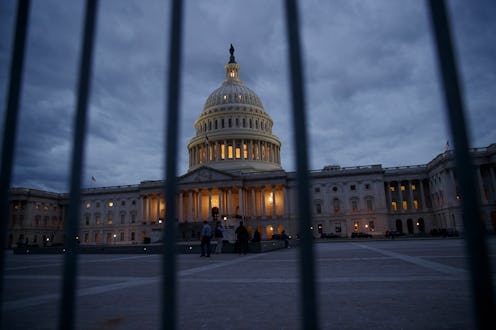
A federal government shutdown began on early Saturday morning after a spate of last-minute negotiations failed to secure enough support to pass a spending bill. Now, as the work week begins, many Americans are likely wondering when the government shutdown will end. While it is still very possible the shutdown could end quickly, some experts also believe that the federal government could be closed for longer than expected. Indeed, they argue that there is perhaps a dearth of urgency and consensus around passing a spending bill, which could contribute to a lengthier shutdown.
First, as a CNN article contended, on Friday evening (and even on Saturday, when the shutdown deadline had already passed), members of Congress dedicated substantial energy to seeking to prevent or quickly end the government shutdown. Now that these measures have failed, the article argued, lawmakers have seemingly accepted that they are now in "shutdown mode," making the prospects for a quick end to the shutdown less likely. Indeed, the article suggested that if an agreement to re-open the government is not reached within the first 36 hours of the shutdown (by 12:01 a.m. ET on Tuesday), the shutdown could go on for longer than expected.
Moreover, an article in USA Today also pointed out that the shutdown could last longer than anticipated due to the fact that the Republican party seemingly does not have consensus on the terms to which it is willing to agree in order to end the shutdown.
As the paper noted, several Senate Republicans, including Senate Majority Leader Mitch McConnell and Sen. Lindsey Graham, have implied that they are willing to discuss immigration and the fate of the Deferred Action for Childhood Arrivals program as part of the spending deal. However, several House Republicans have seemed to indicate otherwise.
Indeed, Rep. Mark Meadows, chairman of the House Freedom Caucus, told USA Today that he was confident that Speaker of the House Paul Ryan would not link immigration to the spending bill.
[Ryan's] not going to do that. ... I'm 100 percent sure at this point we're only going to focus on opening the government back up.
However, other members of the House maintained that linking the two issues may constitute the only way forward. As Rep. Charlie Dent, a Republican from Pennsylvania, told Roll Call:
We're not going to get off this treadmill of [continuing resolutions] until we get into some serious negotiating on the budget agreement, debt ceiling, and DACA, it's that simple.
Complicating matters even further is the fact that the Trump administration has indicated that it is unwilling to discuss DACA until after the government is re-opened. However, Trump himself has also given mixed signals about the type of spending bill he would be willing to sign and whether or not immigration issues could be included, even further complicating negotiations.
Nonetheless, despite all of these hurdles, there certainly remains a strong chance that the government shutdown could end quickly. Indeed, the aforementioned CNN article indicated that it is still more than likely that the shutdown will end rapidly, considering both parties' desire to avoid the potential political consequences of a lengthy shutdown.
Majority Leader McConnell has scheduled a vote for noon on Monday, which would seek to pass a spending bill that keeps the government open until Feb. 8 and promises that discussions about immigration and DACA will be held in that time period. Senate Republicans seem optimistic that this measure could pass, with Sen. Bob Corker of Tennessee calling it a "glimmer of hope."
Nonetheless, the diversity in opinions about what exactly should be contained in the spending bill coupled with the fact that lawmakers now already find themselves in a shutdown as opposed to working urgently to seek to prevent it could perhaps mean that the shutdown lasts longer than expected. Monday's vote should certainly quickly lend clarity to whether the 2018 shutdown will be lengthy or short-lived.